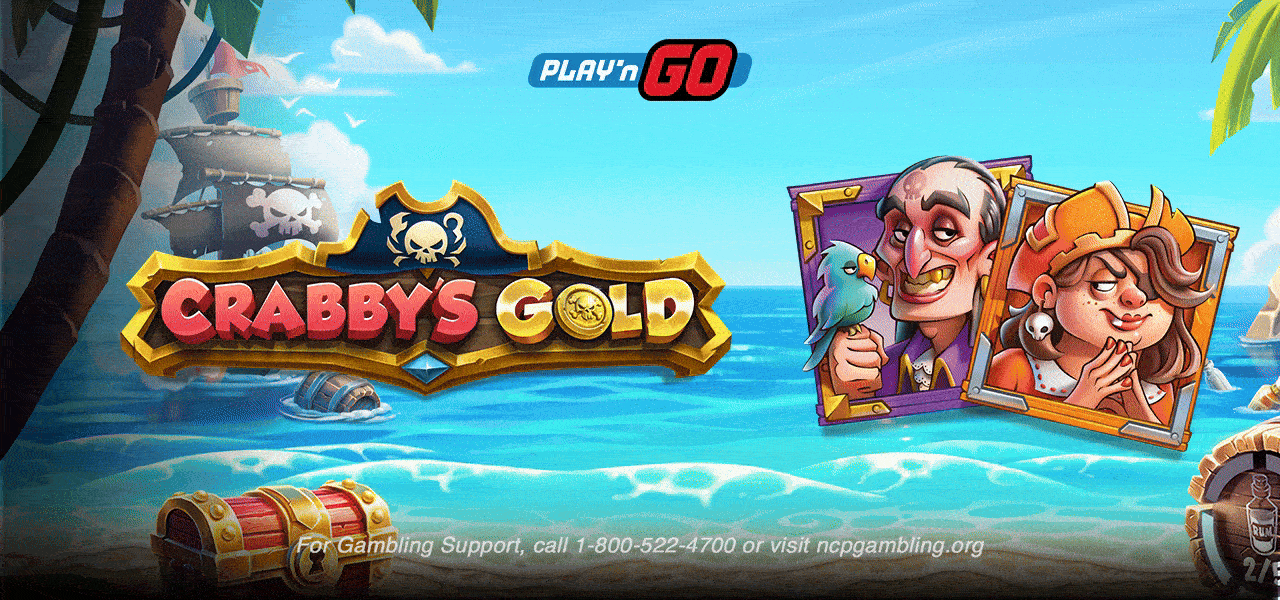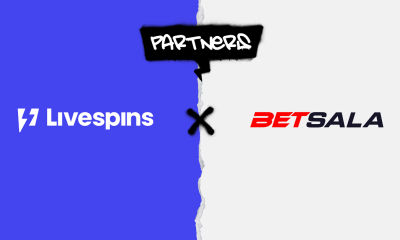Interviews
Roundtable: Spending Smart Not Big in the US

Participants
Michael Pedersen, CCO of Livespins
Tom Galanis, Founder at First Look Games
Allan Petrilli, VP of Sales & Growth at Intelitics
Troy Paul, Co-Founder and CEO at SGG
Summary
This roundtable will discuss the marketing tactics being deployed by operators in the US and in particular, how those with smaller budgets can still drive awareness and build market share. While above-the-line campaigns have their place, affiliates and paid media are just as effective and can drive acquisition at scale but for a more sensible return on investment. It will dig into the upsides that affiliates and paid media offer and what operators need to do to maximise the opportunities they provide. It will also touch on other channels such as social media and streaming and asks if operators are really doing enough when it comes to retention.
Â
Operators have dropped serious money on marketing and acquisition campaigns to date, but many are now questioning the effectiveness of these and the ROI they are generating. Why do you think they took this approach in the first place?
Michael Pedersen, CCO of Livespins
Operators have spent big to leverage the powerful first mover advantage on the table in states that have legalised online sports betting and casino for the first time. They have also been locked in a fierce battle with their rivals over market share, a battle they have been keen to win. Many will have researched the market beforehand and seen analyst reports that it will be worth billions and so have looked to buy their way to the largest slice of the pie. I think this has been the right approach to take for some as there is a huge advantage to be gained by being among the first brands to go live in a state. This allows the operator to capture the significant early interest in legal sports betting and casino when the market first opens. You just have to look at the numbers coming out of Ohio to see the level of activity that occurs in the first few days and weeks of a market opening.
Of course, this is an expensive game to play and requires very deep pockets indeed. The issue now is that operators have been spending big for quite some time and investors are starting to question when this open chequebook approach will pay off. Many understand that brand building takes time, but they do need to see a path to profitability. This path is looking increasingly bumpy in the context of recent changes to the macro environment (interest rates on the rise, cost of living crisis, etc) and it seems investors are running out of patience. This has seen many operators slash marketing spend as part of wider efforts to hit the point of break-even by the end of the year â a target that Iâm sure some will fail to hit.
Tom Galanis, Founder at First Look Games
The trend for massive spend is undoubtedly a result of the historic marketing blitz undertaken by FanDuel and DraftKings and the hundreds of millions of dollars they invested in building their brands in the daily fantasy sports space. Theyâve been able to tap into this brand equity as and when states have legalised online sports betting and casino, taking the lead in most markets. Other brands entering the fray have had to spend at similar levels to play catch-up and stake their claim to the lionâs share in each state. I do think thereâs been an over-reliance on above-the-line (ATL) marketing and the use of brand ambassadors and sponsorship deals. These are incredibly expensive marketing channels that are often more effective at long-term brand building than they are at delivering acquisition at pace. Itâs also worth noting the âGold Rushâ mentality that a lot of operators seem to have adopted â they believed there was a limited window to achieve a critical mass of market share so have spent big in order to achieve it.
Allan Petrilli, VP of Sales & Growth at Intelitics
While many believe operators have embarked on reckless spending, to me there is some method to the madness. Top-tier brands consider this spend under brand-building and with new markets opening up so quickly, they felt they were entering into a fierce battle with their rivals to capture the largest share of wallet in each state. This coincided with public and private investment being relatively cheap, meaning operators didnât have to be quite so mindful of the return they were achieving. There was also an assumption that iGaming/online casino regulation would be quickly rolled out across additional states, and this in turn would help to drive revenues. Of course, the cost of investment and borrowing money has skyrocketed and online casino regulation has not come about at the pace or the scale expected. This has caught operators off-guard, and many are now slashing marketing budgets in order to achieve profitability.
Troy Paul, Co-Founder and CEO at SGG
The passing of PASPA (The Professional and Amateur Sports Protection Act) really heralded the start of âthe great sports betting raceâ â and back then, the general consensus was that the first two or three operators would easily âwinâ and dominate sports betting for all time. Initially, FanDuel, DraftKings and BetMGM outspent the competition and took the first heat, but the race is far from over. Now weâre seeing challengers such as Fanatics and BETR competing in a new heat where the emphasis has shifted from how much a sportsbook spends to how effective their spend proves to be.
Is there an opportunity for operators to spend smart and still drive brand awareness and claim a significant share of the market in each state they target?
Michael Pedersen, CCO of Livespins
Operators are starting to be more conservative. In New York, the likes of WynnBet have put the brakes on entering the market over concerns about the high tax rate impacting its ability to be profitable in the state. Not all opportunities are good opportunities and operators must avoid jumping on the bandwagon just because a state is hailed as a game-changer by analysts and insiders. Aggressive ambition is good, but operators must not walk into markets blind.
In the states that operators do identify as being viable, spending big is not the only way to claim market share and push for customer acquisition at scale. A product such as Livespins can be a major driver of both acquisition and retention. While the core Livespins experience sits within the casino lobby and provides players with an entirely new wagering experience that sees them bet behind their favourite streamers, taking retention to the next level, our soon-to-launch ambassador product has been designed to super-charge customer acquisition.
It allows operators to maximise the value of the brand ambassador/celebrity/influencer partnerships they have by deploying them within the Livespins experience. This means that players can join their favourite celebrities during their streams and play with them via our innovative bet behind system. Not only that, but they can chat with them and other players throughout the broadcast, while also dropping reactions and emojis. This changes brand ambassador marketing from passive to active and allows operators to monetise directly and instantly through the bet behinds being placed.
Tom Galanis, Founder at First Look Games
Absolutely. Thereâs a huge opportunity for operators to generate significant new player sign-ups through performance marketing and affiliates. Operators have seemed hesitant to go all-in with affiliates to date, but as they are forced to cut marketing spend in their pursuit of profitability, I think weâll see more turn to performance marketers to support their customer acquisition efforts. That said, given the traction that the power players such as DraftKings, FanDuel and BetMGM already have in most states, affiliate marketing alone will not be enough to push another brand into this top tier â significant ATL marketing will still be required for those looking to take the crown from the early market leaders.
Allan Petrilli, VP of Sales & Growth at Intelitics
With this downward pressure on spend and the increasing importance being placed on efficiency and ROI, now is the time for operators to be more data-driven in their marketing activity. With many brands slamming the brakes on their above-the-line campaigns, there is a window of tremendous opportunity for savvy operators to explore and take advantage of. Affiliates and paid media have been under-utilised in the US market to date but absolutely can deliver the results operators desire and generate the ROI they are seeking. Of course, with most operators pulling back on top-line marketing spend and looking for alternative acquisition tactics and channels, competition across affiliates and paid media will heat up and perhaps reach the same scorching intensity that we have seen with above-the-line marketing.
To get ahead of the competition, operators should focus on localised marketing for the purpose of brand building. The top five operators will always have big budgets and will take a national approach to most of their acquisition activity, but this opens up an entire area of local marketing for smaller brands to explore and carve out their own significant niche. This is why itâs important for brands to be self-aware and for this to be reflected in their marketing strategies and activity.
Troy Paul, Co-Founder and CEO at SGG
Yes, but in order to do so there are certain key propositions they must deliver. First and foremost, their product has to be top-notch and they must be able to offer a state-of-the-art gambling portal. Secondly, as the market has become more saturated, differentiation and offering a unique betting proposition has become increasingly important. BETRâs micro in-game betting feature is a good example of this and one that definitely sets them apart from the competition. Lastly, if youâre going to take on the big boys, youâre going to need to have your own unique advertising channel. As they canât be beat on TV or Ad Word spending, you have to be smart and find other ways to reach bettors.
What does smart marketing look like?
Michael Pedersen, CCO of Livespins
A clear strategy should be the foundation of any marketing activity. Itâs vital for operators to know their audiences and where their attention can be found. They must also identify their own strengths and weaknesses, playing up to the former and working with specialists to close any gaps with the latter. Knowing how deep the companyâs pockets really are, and the degree of appetite for significant, long-term investment in marketing, is key as it sets the budgets that marketing teams have to play with. Operators and their marketing teams must then use their expertise and experience to come up with a plan that resonates with their target audience, conveys their brand values and USPs, and ultimately drives players to their books and casinos within the budgets they have been allocated. And platforms such as Livespins can deliver incredible results without operators blowing billions of dollars on TV ad campaigns.
Tom Galanis, Founder at First Look Games
It really depends on the ultimate ambition of the brand. If the aim is to scale fast and gain significant market share without any consideration being given to the bottom line, then DraftKings, FanDuel and BetMGM have done a great job. Whether this approach is sustainable remains to be seen, and you also have to factor in the levels of retention these brands are achieving to really determine the success of their tactics. Smaller operators that have looked to emulate these titans have suffered massively and this has ultimately been to the benefit of the big three. That said, it’s encouraging to see some new market entrants such as PlayStar taking a different approach â they are doing things their own way with performance marketing as a key channel for customer acquisition.
The US is a very different market to the UK, but operators in the former should look to the latter to see what does and doesnât work. New York shows that operators are not learning fast enough â when margins are squeezed (in this case because of the high tax rate) agility with both product and marketing is crucial to ensuring market viability. When it comes down to it, smart marketing is a strategy that is both sustainable for the long term and balances achieving a critical mass of customers with a clear pathway to profitability.
Allan Petrilli, VP of Sales & Growth at Intelitics
An ambitious but achievable plan is the foundation of all smart marketing activity. Plans need to cover each channel, and operators need to ensure their marketing teams have access to the technology they need to track, monitor and optimise campaigns. They must also be open to and ready to pounce on any opportunities that open up. Data should be used to drive all decisions, from pulling underperforming campaigns to ramping up the spend being put behind those that are delivering solid results. Data also allows for campaigns to be tweaked in real-time, helping operators to further improve the ROI they generate. Itâs also important for operators not to copy the tactics being deployed by their rivals â this is a market where being brave, bold and swimming against the tide yields the greatest results.
Troy Paul, Co-Founder and CEO at SGG
There are many brands marketing effectively in the US, and pretty much all of them have their own unique set-up. Barstool, for example, is a great example of a brand that has successfully harnessed the power of social media. They have a community of loyal followers on multiple channels who relate to their brand, so theyâre able to market to an audience of 50 million followers every day. This is a cost-effective solution for attracting younger sports bettors, as this audience is often found dual-screening on their cell phone while watching sports â meaning itâs the easiest way to reach them.
FanDuel and DraftKings, meanwhile, have both created a dedicated podcast following and keep themselves in front of this audience on a weekly basis. This is, of course, something that takes a while to establish, so itâs hard for new competitors to replicate and gives them a distinct edge in the market.
Â
Have operators yet to explore the full potential of affiliates and paid media? If not, why do you think this is the case?
Tom Galanis, Founder at First Look Games
No, they havenât. I think this is for a couple of reasons. Some operators hold the belief that brands in more established markets are over-reliant on and over-exposed through affiliates. Others seem to think the channel creates a more even playing field for smaller brands to gain market share and that affiliates do not offer the scale and speed of scale they require. There also seems to be a high level of mistrust and misunderstanding when it comes to affiliates.
Allan Petrilli, VP of Sales & Growth at Intelitics
This is a bit of a loaded question. There are definitely some that are focusing more on affiliates and paid media, but broadly speaking they have not been fully explored to date. This is likely because these channels require experience, expertise and proper set-up in order to be successful. But given the scrutiny that current marketing activity is coming under, brands are increasingly leaning into both as they look to find efficiencies while scaling traffic. As these tend to be more supportive channels, I expect to see the percentage of overall marketing spend shift in a meaningful way towards affiliates and paid media over the next 12 months.
Troy Paul, Co-Founder and CEO at SGG
Social media remains a largely untapped channel and is â in our opinion â the future of attracting the next generation of sports and casino players. That said, in the past some of the more old-school operators havenât been particularly quick to embrace it. The reason for this might be that they didnât possess the skills or know-how to communicate with this customer demographic effectively. Affiliates can help in this respect as they often have niche audiences that operators arenât able to reach by themselves, such as social media groups or college sports fans. This can help them connect with customers outside of their traditional target audience and greatly increase their acquisition potential.
What upsides do affiliates offer? How can operators maximise the opportunity here?
Tom Galanis, Founder at First Look Games
A solid affiliate program provides the foundation for operators to grow their player base sustainably and cost-effectively. Affiliates essentially act as brand and product advocates, promoting those brands that deliver the best player experience and holding those that donât to account. This ultimately helps to raise standards while driving significant, quality traffic to those at the top of their game. Most affiliates are also willing to work with operators to help them achieve their goals â those that are properly incentivised will be willing to work to lower CPAs which are incredibly high in the US compared to more mature markets such as the UK.
Allan Petrilli, VP of Sales & Growth at Intelitics
Most affiliates are specialists when it comes to digital marketing and user acquisition. They have sizable audiences or know how to acquire them, that are primed and ready to sign up to and play at online sportsbooks and casinos, so long as those brands offer what they are looking for. Affiliates require little to no set-up costs with operators paying for what they get in terms of depositing customers. They can also provide operators with highly valuable feedback on their conversion flows, products and more â this feedback is incredibly hard to come by and can help operators improve the player experience offered, which in turn boosts acquisition but also retention.
Â
And the same for paid media â what is the potential here and how can operators unlock it?
Tom Galanis, Founder at First Look Games
Affiliates are currently dominating the paid media space in the US market because, compared to other markets, there is a much higher margin to be made. But this means there is room for operators to get in on the action and use paid media to directly acquire customers and achieve a strong ROI. For example, paid media is the ideal vehicle to flex up acquisition during the limited window of the NFL season.
Allan Petrilli, VP of Sales & Growth at Intelitics
Paid media simply refers to placing ads across a wide range of media platforms such as Meta, Google, publisher networks and mobile networks. Campaigns can be highly targeted across location, age, interests and more to ensure they hit the right players. The key to unlocking the full potential of both paid media and affiliates is using a mar-tech platform that provides access to data in real-time. This allows operators to tweak campaigns to improve performance and to ramp up and scale back spending as and when required.
What other, cost-effective channels can operators use for brand building and marketing? What role can streaming play here? What about social media?
Michael Pedersen, CCO of Livespins
Streaming has proved to be a highly effective marketing and acquisition platform for online casino and sportsbook brands, but operators remain cautious, especially following Twitchâs decision last year to ban certain operators from its platform. Livespins allows operators to overcome these concerns â because it sits within the casino lobby, players are afforded the same responsible gambling and safe gaming tools when playing traditional casino and sports, as required under an operatorâs respective local licences. This means they can tap into the huge â and growing â potential that streaming offers both in terms of acquisition and retention while being confident that they are fully compliant at all times.
Tom Galinis, Founder at First Look Games
Iâm coming around to the idea that offline activation is an underutilised channel. Weâre seeing affiliates like Betting Hero and Affiliated Sports Fans gaining traction here, and operators should look to follow their lead. In terms of social media, paid social is the play for sure and in terms of building up an audience, Iâd be looking to focus efforts on TikTok. The price of content generation is extortionate in the US, so I fully expect AI-generated content to come to the fore as the technology becomes more sophisticated â weâre already seeing leading affiliates and some operators using it.
Allan Petrilli, VP of Sales & Growth at Intelitics
In terms of live acquisition, we will see more out-of-home campaigns and activity. It is being done by some brands at the moment, but there is so much more potential to unlock here and especially at the local level.
Troy Paul, Co-Founder and CEO at SGG
According to the most recent statistics, an estimated 75% of marketers will use Influencer Marketing in 2023, with this representing a $17.4 billion industry. Most operators are way behind in terms of tapping into this lucrative space, which is arguably the most cost-effective way of advertising to the younger generation of sports fan. In particular, micro-influencers are more engaged with their sports followers and can be utilized at a fraction of the cost of a âTom Bradyâ or similar superstar influencer.
Retention is just as important as acquisition, but are operators paying enough attention to this? If not, why is that the case?
Michael Pedersen, CCO of Livespins
I disagree â retention is even more important than acquisition. Onboarding new players is just the first hurdle that operators must clear â then the real hard work begins. Thatâs why before spending a single dollar on acquisition, they must spend $10 on ways to retain those players. If operators are not confident about retaining players, they should not spend anything on marketing to them. If they are confident, then they can launch acquisition campaigns and scale up those that are working well. I really canât stress the importance of CRM and ensuring that players continue to wager with the brand once they have signed up for the first time. This is especially important in the US where the cost of acquisition is sky-high right now.
Tom Galinis, Founder at First Look Games
No, theyâre not. Iâd say this is partly down to a lack of product capability to really be able to deliver organic retention, but I also think thereâs a firmly held belief that the activation of another local league or team sponsorship will do more than sophisticated CRM systems ever could. But operators are wrong to believe this.
Allan Petrilli, VP of Sales & Growth at Intelitics
I think they are starting to, but the future here is around personalisation. With advances in technology, the brands that use this to offer a truly bespoke player experience will be the ones that ultimately win. What does this look like? If I bet on the New York Jets each weekend, I should be able to log in to my sportsbook app and have a prefilled bet sheet each week ready and waiting to go. This is just one example, and the sky really is the limit here.
Troy Paul, Co-Founder and CEO at SGG
Having a great gambling platform is obviously a major prerequisite for successful retention, as is finding a way to engage with your players on a daily or weekly basis, such as a podcast or social media channel. In order to keep your product front and center in customersâ minds, you have to go where their eyes go as theyâre watching games â and these days, thatâs increasingly their cell phone screens.
How can operators turbo-charge their retention efforts and activity?
Michael Pedersen, CCO of Livespins
It comes down to delivering a seamless player experience beyond that being offered by rival brands. This covers all areas of the book or casino, from the welcome offer to onboarding, KYC, payments and customer support. Of course, the gaming experience offered is crucial and thatâs why products such as Livespins are a must for operators. The Livespins experience offers an entirely new way for players to experience online casino, while being interactive and social. Session times are off the charts, and this in turn is helping operators mitigate churn and keep their players playing for longer. It also acts as a huge point of difference, adding more kudos to its ability to help keep their players coming back for more.
Tom Galinis, Founder at First Look Games
Simple. Build the best product which means not relying on the relatively poor player management systems that currently underpin the US market. This is where I feel bet365 can gain market share. Yes, theyâll have to invest in ATL, but I fully expect them to get their product successfully localised and become the best product on the market. This will ultimately act as the foundation of retention at scale.
Interviews
Review Fatigue Is Real: How to Make Casino Comparisons Clear, Honest, and Human

Sebastian Jarosch is the founder of Mithrillium Media Ltd, and a very famous figure in the iGaming industry. His contributions to the market have been immensely influential. Jarosch has overlooked several projects relating to the online gambling market, most notably those involving affiliates. Because of his past works, we believe he is uniquely qualified to address the topic of Review Fatigue, that seem to be plaguing the industry right now.
Actions speak louder than words. And Jaroschâs actions have earned him several of the most notable industry awards. Among the most notable are the Casinomeister 2020 Awards for Best Casino Group, the AskGamblers Awards for Best Partner in 2021, and the Affpapa Awards Affiliate Programme of the Year 2022.
Interview Questions:
What is âreview fatigue,â and why do you think itâs becoming a growing issue in the iGaming space?
Review fatigue happens when players are faced with repetitive, overly long, or generic content. With so many casinos offering similar bonuses, games, and licensing, users quickly lose interest if every review sounds the same. Many reviews lack real insight and simply list features without context, often sounding too good to be true. As a result, players tend to skim or move on entirely, especially if theyâve already seen the same structure and wording on multiple other sites.
How can overly technical or overly promotional content alienate users instead of helping them?
When content is too technical, it can confuse or intimidate newcomers. Ideally content is educational and written with the player in mind. On the flip side, a sales pitch feels dishonest, especially to experienced players who know what to look for. Users are looking for clarity and guidance, not marketing sugar coated casinos. If a review sounds like itâs trying to sell rather than help, it erodes trust immediately. Players want transparency, real pros and cons, not just buzzwords.
What are the most important things players want to see in a casino comparison, and what can we safely leave out?
Players want to know the promotions, payment methods, withdrawal speeds, licensing, game variety, and reliability of a casino. They also care about things like support quality, KYC, ownership, RTPs, and real player feedback. What they donât want is generic content that could apply to any casino and offers no real value. Sites like Casino-Groups help players pick the right casinos based on individual preferences.
How do you balance clarity with completeness when writing or designing reviews?
Itâs all about prioritizing information and guiding the reader. We aim to answer the most important user questions right at the beginning, often using summary tables to make things easier to digest. More detailed information comes later for those who want to dive deeper. Itâs important to avoid walls of text and explain complex terms in plain language. The goal is to give users exactly what they need to know, without bombarding them with unnecessary information.
Do players trust shorter, more digestible content more than long-form reviews today? Why or why not
Shorter content tends to convert better because users find what theyâre looking for quickly, without digging through long paragraphs full of filler. Dense, meaningful content with no waste often performs best. A short, clear, and well-structured review can build more trust than a long one filled with fluff. That said, some players do enjoy longer reviews, especially when theyâre broken up with visuals, clear sections, and genuinely useful insights.
What role does tone of voice play in making reviews feel more human and less âsalesyâ?
A review should feel like itâs written by a real person whoâs an expert in the field, not by ChatGPT or a salesperson. We use conversational language where possible and speak directly to the user. If somethingâs bad or a bonus is just average, it needs to be mentioned. That kind of honesty builds far more credibility than flashy design or empty buzzwords.
How do you verify and present information (e.g., licensing, terms, payment speed) in a way thatâs both accurate and user-friendly?
We manually verify everything by signing up, testing support, and reading the fine print. We also check licenses through official registries and monitor user feedback on watchdog sites. To present the information clearly, we use tables, lists, screenshots, and both internal and external links to relevant pages. All our reviews follow a consistent format so players know what to expect and can easily find the details they need.
Have you experimented with visual elements like comparison tables, badges, or rating meters to reduce cognitive load?
Pictures speak a thousand words and help break up content into smaller, more digestible sections, reducing review fatigue. We use comparison tables for things like bonus terms, game selection, and payment methods. Every review includes a rating, and we apply badges to highlight our top casinos. This makes it easier for users to compare options at a glance and make smarter decisions with less effort.
What strategies do you use to keep review formats consistent while still personalizing the experience for different user types?
We follow a consistent structure that works well for both SEO and conversions. However, if a specific area needs emphasis or additional context, weâre happy to deviate from our standard format to ensure topical completeness. Some casinos offer unique features that deserve extra attention, and in those cases, weâll add dedicated sections. The framework is consistent, but we stay flexible where it counts.
Looking ahead, how do you think casino reviews will evolve to meet changing user expectations and attention spans?
Weâll see more interactivity, personalization, and smarter use of data. Reviews could adapt in real time based on user preferences, highlighting crypto options for one user and game selection for another. AI chatbots may help users find the best match and answer questions about a casino instantly. Integration with platforms like Discord or Telegram where players can exchange themselves could also make reviews feel more social and trustworthy. Reviews need to become sharper, more authentic, and more genuinely helpful than ever before.
Interviews
Curated for impact: How Infingame is redefining games aggregation
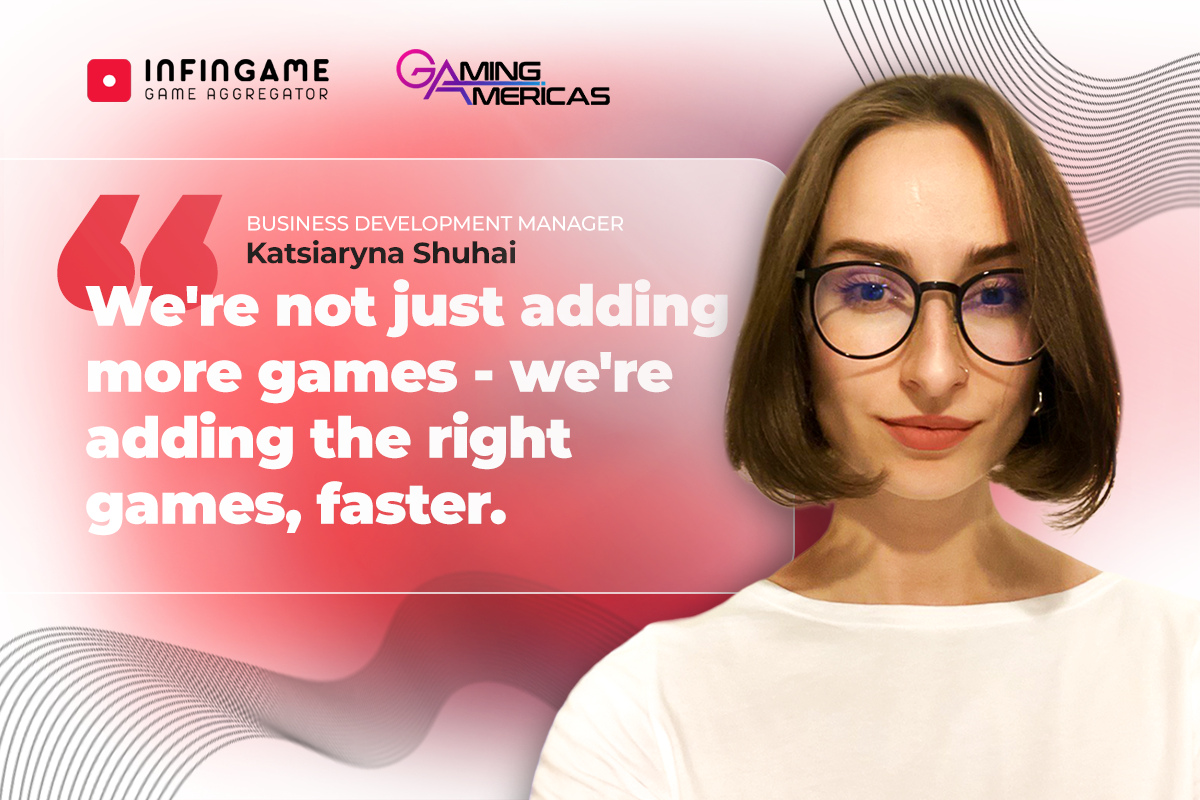
In an exclusive with Gaming Americas, Katsiaryna Shuhai, Business Development Manager at Infingame, explores how the supplierâs curated approach to casino content is redefining the games aggregation space.
Katsiaryna, can you begin by introducing yourself â what does your role at Infingame entail?Â
As the Business Development Manager at Infingame, I lead strategic partnerships and integrations with game studios and content providers. My role focuses on identifying standout gaming content that fits our platform’s vision, negotiating collaboration terms, and ensuring smooth onboarding.
With a background in advertising, I bring a strong focus on relationship-building, open communication and a personalised approach to each partner. I believe that genuine connections and tailored solutions are key to driving successful, long-term collaborations.
Infingame has recently integrated with innovative game studios, including TaDa Gaming and Popiplay. What factors influenced your decision to partner with these two studios in particular? How have they impacted your partners’ engagement and retention across Latin America?Â
Our decision to partner with TaDa Gaming and Popiplay was driven by each studioâs ability to deliver innovative, high-performing content that resonates with players across our key markets, including Latin America. Popiplay offers energetic, entertainment-led slots, while TaDa brings a diverse mix of popular formats such as crash and fishing games.
Weâre confident that these integrations will help our partners boost player engagement and retention, particularly in Brazil, Mexico, and Colombia. Both studios align perfectly with our goal of delivering meaningful and localised content.
With 16,000+ games from 200+ providers available via Infingameâs platform, how do you ensure that new titles donât just add volume but deliver real value to your operators?
While our platform boasts a vast library of games, we prioritise quality over quantity. Itâs important to deliver content that we know players will enjoy, rather than just sheer volume.
When adding new content to our platform, each new title undergoes a rigorous evaluation process to ensure it meets our standards for player engagement, technical performance and market relevance. By focusing on curated content that aligns with operator needs and player preferences, we ensure that every addition enhances the overall value proposition for our partners.
Infingame is now taking a much more curated approach to game studio integrations. What sparked this change in strategy?
The shift towards a more curated approach stems from our commitment to delivering tailored, high-quality content that meets the specific needs of our operators and players. We want to make sure that the games on our platform are suited to local player behaviours, technical requirements and localised to each individual market.
As the iGaming industry continues to evolve, and more markets begin to embrace gambling regulation, it’s essential to focus on partnerships that offer strategic value, ensuring that each integration contributes meaningfully to our platform’s objectives and enhances the user experience.
With more selective onboarding of game providers, how does Infingame evaluate which studios to integrate with? What criteria do you consider?
We evaluate potential game studio partners using a rigorous set of criteria to ensure quality and compatibility with the Infingame platform. Key factors include the uniqueness and quality of game content, with an emphasis on standout mechanics, visuals and immersive experiences. Technical reliability is absolutely crucial – we assess API stability, integration efficiency, and overall tech performance to guarantee seamless operations.
We also consider the studioâs reputation and regulatory compliance across our target markets, ensuring that they meet legal standards and industry expectations. A strong track record of player engagement and retention is another important indicator of long-term value.
Additionally, we look for a clear commitment to innovation, including new formats or features that enhance the player experience. This selective onboarding approach helps us maintain a diverse, high-performing game portfolio that supports our operator partners and meets the evolving demands of players worldwide.
How will this refined integration strategy impact your existing and prospective partners, particularly in terms of content diversity and speed to market?
This refined integration strategy empowers us to deliver greater value to both existing and prospective partners by emphasising quality over quantity. By curating a portfolio of high-performing, innovative content, we ensure that our partners can offer games that genuinely resonate with their target audiences and stand out in a crowded marketplace.
Our focus on onboarding only top-tier, reliable studios means partners benefit from diverse and engaging content that drives player retention and growth. Additionally, by streamlining technical integration and reducing operational friction, we can accelerate speed to market, enabling our partners to launch new titles more efficiently and capitalise on emerging trends.
This agility is key to maintaining a competitive edge. Ultimately, our strategy is designed to foster long-term success for our partners by delivering not just more games – but the right games, faster.
Finally, whatâs next for Infingame? Are there any upcoming partnerships, features, or innovations that you can give us a sneak peek of?
Looking ahead, Infingame is committed to expanding its portfolio through strategic partnerships with studios that deliver innovative, high-impact content. Our focus remains on curating games that not only entertain but also enhance player retention.
At the same time, we’re investing in new technologies and platform features – such as advanced tournament mechanics, real-time engagement tools, and personalised player experiences – to help our partners stay ahead of industry trends.
These enhancements are designed to drive deeper engagement, increase revenue potential, and strengthen the overall value we bring to our operator network as a trusted, forward-thinking iGaming aggregator.
Interviews
Sweepstakesâ next chapter: Exploring global potential, US regulations and player preferences
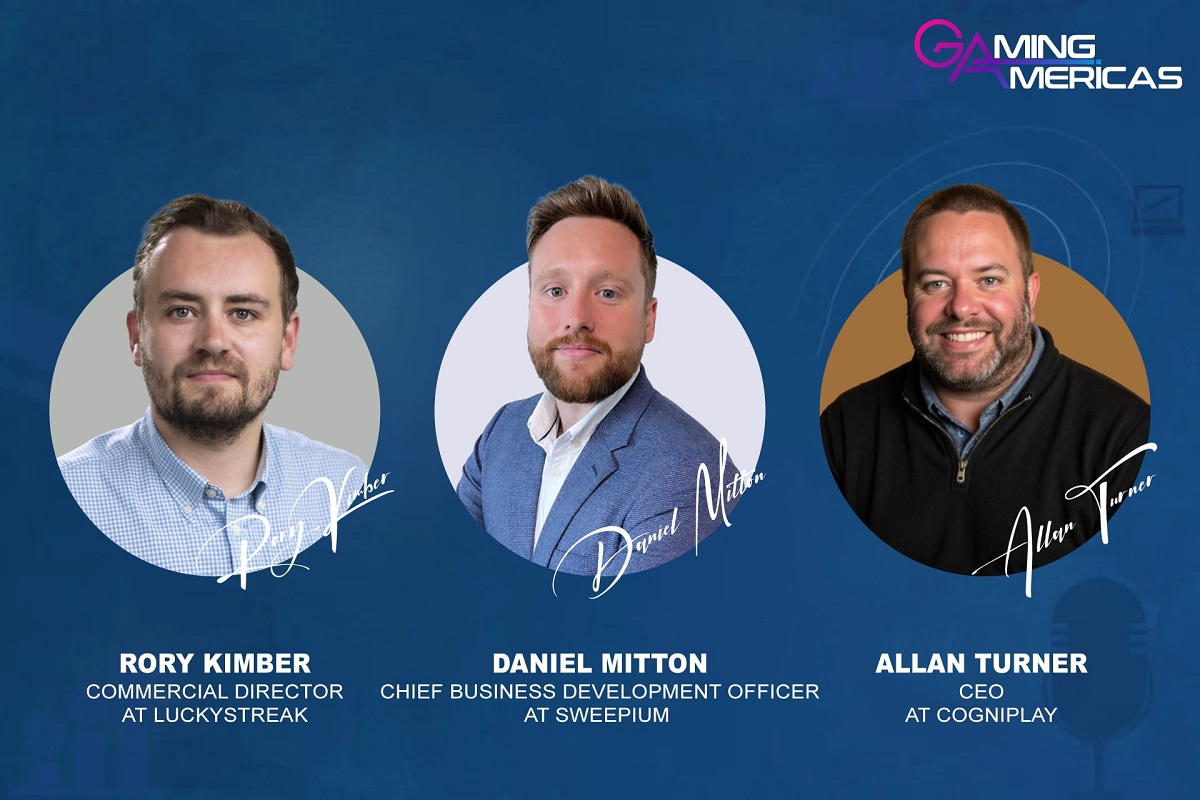
Sweepstake casinos have seemingly come out of nowhere to dominate the discourse across the US. We spoke to a number of providers who have entered the space to see what their expectations are, and how far the sweeps vertical can go alongside the traditional casino experience.
With/ Rory Kimber, Commercial Director at LuckyStreak, Daniel Mitton, Chief Business Development Officer at Sweepium and Allan Turner CEO at Cogniplay
Â
What games are best received by sweepstake customers? Traditional games or more gamified titles such as boosted multipliers or big jackpot games?
RK: I would say that for live dealer, itâs a traditional genre of games that are popular with sweepstakes casinos players, and as weâve seen, particularly Blackjack. US players are more likely to play in land-based casinos, so the authentic and human aspects of live dealer games naturally resonate well.
Weâve seen a big uptake of all our core games, which was gratifying, but thatâs not to say the gamification aspect doesnât play a role, as our leaderboards and tournaments are popular and very effective, particularly with this segment of players that are looking for more than just gameplay.
In slots it seems to depend on the brand; some operators bring in players who want traditional maths and features but an increasing number are seeing strong performance from new games with unique features that never lose your attention for a second. The providers that create games with sweepstakes players in mind will be more likely to see success.
AT: What weâre seeing is that players seem to lean towards games that feel quite traditional and familiar to them in most cases. Although, they often come with features like fixed jackpots that scale with your bet, which adds a bit more excitement to their playing experience. I would say that users are gradually getting more experimental over time, and as the prevalence of non-US based games providers increases on sweeps sites, with them applying the sweeps mechanic to their games, innovation is certainly speeding up, and this is being embraced by users.
DM: What weâre seeing from the U.S. audience is a clear preference for high-energy, feature-rich games. Titles that include interactive mechanics, boosted multipliers, or big-event style moments consistently drive the most engagement. These kinds of experiences are more immersive, more social and they give players a sense of momentum and excitement.
That said, traditional slots and classic-style games still play an important role especially as an entry point for new users. Over time, players really respond to content that feels fresh, dynamic and packed with surprises. It’s not just about spinning, it’s about participating in an entertainment experience.
Â
Do you tweak titles to be unique to sweepstake casinos, or does the same product respond well on traditional online casinos and social?
AT: Right now, we mostly work with studios to handle any tweaks, though in general, the classic versions of games tend to perform well across different platforms. One area that we do see more interest in the sweeps market, is in things like fishing and shooting-style games, which have a real captive audience in the US, due to the history of fish table games in the market. One tweak that a lot of brands are employing is asking their game providers to create branded games for them, which in a lot of cases tends to perform very well, particularly for the more well-known brands.
RK: We tweak our games to be compliant first and foremost, but in terms of the actual gameplay in the Live games, itâs pretty much the same.
For social casinos in particular, there are necessary changes because the number of coins people win can be enormous, so that requires some thought too. For slots, weâve seen our providers make sure the fastest gameplay settings are defaulted, along with all their features enabled that some regulated markets donât allow, but really a lot of the time the gameplay experience is comparable.
That being said, providers who build sweepstakes and social titles from the ground up do go about things in a different way and have those players front of mind throughout the development process and that has been successful.
DM: Weâve found that the core product translates well across both traditional online and sweepstakes platforms especially when it comes to high-quality, well-designed games. The fundamentals of engaging gameplay, strong visuals and smooth mechanics resonate just as strongly with sweepstakes players as they do in real-money or social environments.
That said, there are subtle but important differences in how players engage. In sweepstakes, we tend to see more interest in longer session times, progress-based features and community-driven elements, which slightly shifts how we position and present the content. For example, boosted multipliers and timed events do especially well in the sweeps format because they align with that desire for ongoing entertainment and personal achievement.
Ultimately, a strong core game can succeed in both spaces. It’s about making the right adjustments to match player expectations keeping the experience fresh and engaging.
Â
Do you think sweeps will become as popular throughout Europe as they are in the US?
RK: I think the elephant in the room is regulation. Sweepstakes are a popular product but are inextricably linked to what local regulation allows. For European markets where the real money industry has experienced stringent regulations I believe there is a space for sweepstakes casinos to come in and give players an experience more comparable to what they enjoyed a few years ago. Iâm no expert on the legalities of sweeps in each of these jurisdictions but Iâd be very surprised if they donât gain a foothold in the European market somewhere.
DM: Thereâs definitely potential but the dynamics are different. In the U.S., the appeal of sweepstakes is closely tied to accessibility and the ability to engage across most of the country, on a state by state basis. Thatâs given the model a unique edge in the U.S. market.
In Europe, where the digital entertainment and gaming landscape is already well-established, the path might look different but I do think thereâs room for growth, especially in areas where lightweight, low-barrier gaming experiences are in demand. The key will be localization, cultural relevance and regulatory framework. The model works best when it speaks directly to the habits and preferences of each market.
AT: Personally, I think itâs all about how market conditions change in Europe in the coming years, particularly with regards to regulation. In the US sweeps has become particularly popular because it has filled the void left by the fact there are still so few regulated states for real-money gaming. Does this void exist in Europe in the same way? Well, no, not in most countries, not now anyway. However, should regulators continue their current path to over-regulation, who knows how that will end up. There are already several sweepsâ sites operating in a few European markets, that are already quite over-regulated, and that trend could well continue apace.
Â
Sweepstake casinos have shot to popularity in a swift time frame. Where do you think theyâll be in 5 yearsâ time?
AT: This is the billion-dollar question on everyoneâs lips right now, with regards to sweeps, itâs certainly a question we get asked a lot! Obviously, there is a lot of noise about sweeps at the moment, and a huge number of variables to consider, and itsâ anyoneâs guess how it will all turn out in the end. Ultimately there is a huge demand in the US for online gaming products, and it seems logical, as part of free market economic theory that unless regulated gaming can progress much more quickly than it is now.
RK: Well again the obvious answer is what US regulators do – both in terms of the speed of opening up new states to online casinos, to how they respond to the growth of the sweepstakes sector. If things carry on largely the same I can see sweepstakes being at a similar level in terms of market share, perhaps even growing as more providers and new operators enter the market and improve the product offering.
I think overall it will be a balance, as certain areas in the US close off sweepstakes, other markets round the world will open up, so I see a steady path ahead on a global level – although perhaps not a repeat of the explosion weâve just witnessed. Social is a different kettle of fish: I believe it will continue to grow rapidly and become linked in more interesting ways with the acquisition activities and loyalty programmes of real money gambling companies, whether they be land based or online.
DM: Looking five years ahead, I see sweepstakes platforms evolving into full-scale entertainment hubs. The future isnât just about gameplay, it’s about creating connected, content-rich environments that bring together digital experiences, creator-driven events and community engagement.
Weâre building platforms where people donât just come to play, they come to interact, explore and be part of a larger digital culture. That could mean live-hosted experiences, interactive tournaments or even crossovers with music, sports or media. The sweepstakes format is incredibly flexible and that gives us the ability to adapt fast and scale with the culture. In short, weâre not just part of the digital entertainment world, we’re helping shape where itâs going next.
-
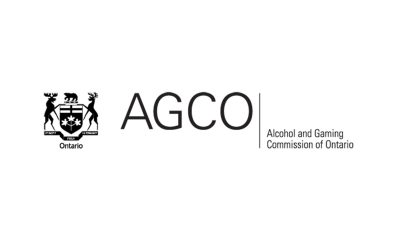
 Canada7 days ago
Canada7 days agoAGCO Fines Great Canadian Casino Resort Toronto $350,000 for Serious Regulatory Violations Linked to Impromptu After-Party on Gaming Floor
-
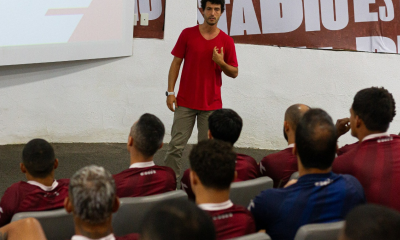
 Compliance Updates7 days ago
Compliance Updates7 days agoEsportes da Sorte holds forum on âIntegrity in Sportsâ with CearĂĄ and NĂĄutico
-

 Latest News7 days ago
Latest News7 days agoBlokotech unveils Cristian Tonanti as new Casino Partnership Manager
-

 Latest News7 days ago
Latest News7 days agoEDGE Boost Named Preferred Payment Method for World Series of Poker Event Series
-
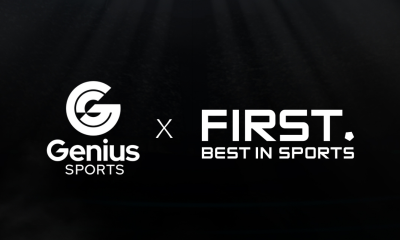
 Latest News7 days ago
Latest News7 days agoFIRST and Genius Sports Extend Landmark Data Partnership, Powering Continued Growth
-

 Canada7 days ago
Canada7 days agoIGT and Atlantic Lottery Sign Eight-Year Video Lottery Central System Technology Agreement
-

 Latest News6 days ago
Latest News6 days agoNASCAR & iRacing Renew Partnership with PlayVS
-

 Latest News4 days ago
Latest News4 days agoRivalry Reports Full-Year 2024 Results as Strategic Turnaround Takes Hold, Operating Loss Narrows, and Efficiency Improves


